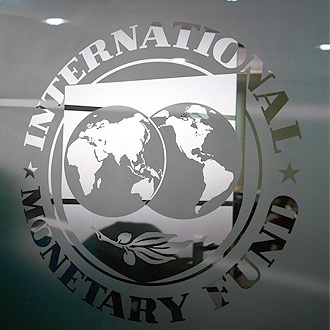
Zimbabwe has two options to turnaround the declining economy saddled by huge foreign debt — looking for foreign direct investment (FDI) or domestic resource mobilisation, analysts have said.
BY PAIDAMOYO MUZULU
The country is saddled with a US$10 billion debt and needs up to US$27 billion to implement Zanu PF government’s ambitious economic blueprint — Zim Asset.
But, economists believe the current government cannot be trusted to make a good choice considering its history.
Labour and Economic Development Research Institute of Zimbabwe (Ledriz) economist Prosper Chitambara is convinced that the two choices open to the government presently cannot be pursued as a result of the perceptions from both domestic and foreign investors on President Robert Mugabe and his Cabinet.
“The government has showed lack of concern for private sector considering that all the said mega deals signed recently with China and Russia had no involvement of the private sector which should ordinarily in a developmental state partner the government on such projects,” Chitambara said.
“The government’s credibility among the ordinary people and investing public is very low considering its track record on dealing with private property like when it expropriated private citizens’ foreign currency accounts and is still to complete reimbursing nearly a decade later.”
International Monetary Fund (IMF) head of mission to Zimbabwe, Diminique Fanizza last week told the government that it had to improve its political capital and pay or restructure its debts if it was to receive fresh loans from multilateral financial institutions.
- Chamisa under fire over US$120K donation
- Mavhunga puts DeMbare into Chibuku quarterfinals
- Pension funds bet on Cabora Bassa oilfields
- Councils defy govt fire tender directive
Keep Reading
“The IMF decision to give money is entirely mired in politics. The major shareholder decides who gets money and who doesn’t. The ambitious development objectives set in the Zim Asset strategy cannot be achieved without the support of the international community,” Fanizza said.
The United States is the major shareholder in the three biggest multilateral institutions that fund developmental projections in Africa — IMF, World Bank and Africa Development Bank (AfDB). Among them, the banks have over US$75 billion set aside for projects in Africa, but Zimbabwe cannot access these funds as it is under sanctions from the US.
Not only do these banks deny funds, other international financiers take their cue from them before they release funding to any borrower.
Former Finance minister and opposition lawmaker Tendai Biti said it was important that the country re-engages the West and settle its debts to save the collapsing economy.
“There are lots of funds which we could access from the multilateral institutions if we re-engage United States and settle our arrears with the IMF,” Biti said.
Biti’s MDC Renewal Team has been calling for an all stakeholders’ conference that encompasses political parties, civil society, business and labour to deal with the deteriorating economy.
Renewal Team on Friday said Zanu PF should concede that it has failed to turn around the country’s economic fortunes and therefore should accept the setting up of a transitional authority.
“The biggest problem with Zanu PF government is its propensity to spend, consume, without investing in capital projects. A large chunk of the budget is spent on salaries and foreign travel and subsistence.”
Chitambara concurred, that there was need to have an all stakeholders’ conference to deal decisively with the question of the economy.
“The government policies are anti-business and it is important that there should be social dialogue between government and private sector as part of confidence building,” Chitambara said.
On the other hand, analysts said the domestic mobilisation of resources means the government should adopt a number of structural adjustments in the manner in which it conducts its business.
“Domestic resource mobilisation means reforming the State-owned enterprises and restructuring the size of the government which is spending more money on consumption than capital expenditure,” Chitambara said.
The 82 State-owned enterprises are generally loss-making entities despite the fact that some of them are monopolies.
In the last 15 years, the government has been attempting to commercialise or privatise some of the parastatals without success. Among the companies that had been listed for commercialisation are Air Zimbabwe, AgriBank, Arda, NetOne, Cold Storage Commission and TelOne.
Whichever model the State adopts between foreign direct investment and domestic resource mobilisation, Chitambara argues, the government still needs to decisively deal with the debt question.











